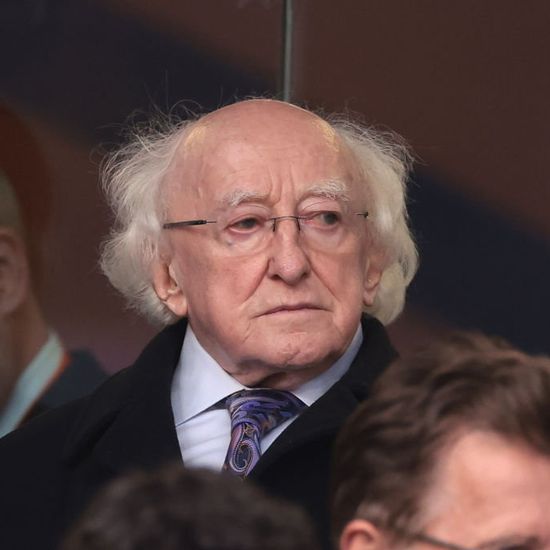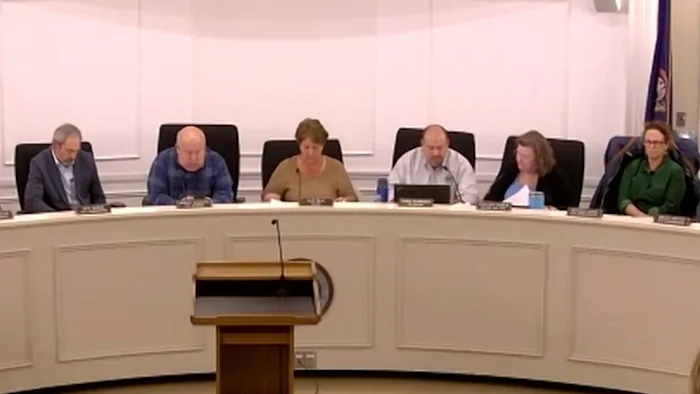Copyright independent

Higgins did not merely test the limits of the presidency, he wilfully ignored them. Time and again, he used the office as a megaphone for his worldview. But the real concern lies not in the fact that he spoke out, but in whom he chose to speak for and whom he chose to remain silent about. His record on human rights is riddled with selective outrage. He had no difficulty railing against western policy, yet appeared remarkably timid when it came to the likes of Iran or Cuba. His rhetoric on Israel has drawn sustained criticism. It is hard to ignore the stark imbalance: relentless condemnation of a democracy while despots elsewhere are indulged or receive outright praise. Diplomatically, the fallout has been real: invitations withdrawn, statements disowned and ministers left to tidy up the mess. At home, he alienated large sections of the public by presuming a moral authority he was never granted. Higgins leaves an office dim-inished by ego and ideology. His successor will have a simple task: restore the dignity he spent years chipping away. Stephen Kearon, former government special adviser, Ballinaclash, Co Wicklow Find another site for children’s science museum Madam — John Burns’s exposé of the latest OPW fin-ancial sinkhole, the binding €70m contract to build a children’s science museum for a charity with no money, beggars belief (‘Any Other Business: We still don’t have a science museum – but we do have a bill’, October 5). If I may, I can offer some insight into the organisation-al hubris that has led us here. The site at Earlsfort Terrace consists in part of two elem-ents of a 1939 Guinness family bequest to the nation, namely the Iveagh Gardens, open to the public in recent years, and the lesser known Real Tennis Court, a distinctive red-brick building that abuts the street. Lord Iveagh wished the gardens to be “a lung for Dublin”, a garden of peace, interrupted now only by concerts on the original ice-rink/archery ground. Of the tennis court, internally panelled in black Galway limestone, he stated: “I am loath to think of it being destroyed as it is unique in its way.” It staged the real tennis world championships in 1890. The interior was demolished in 1940, despite pleas to taoiseach Éamon de Valera by players. It has never been available for play since. Proposals for the children’s science museum involve demolishing the east-side boundary wall at the gardens and making a transport opening through the marble of the tennis court to create a temporary exhibition space. Both plans were opposed by gardens and tennis interests, as well as heritage bodies. Plans to turn the tennis court into a recital hall in 1998 were thwarted, an experience that has led to an apparent determination by the OPW to invent any use for the court other than that for which it was donated. At one point, it was to be hived off to a private developer, involving further part-demolitions. The logic of the previous proposed location for the children’s science museum, near Heuston Station, was faultless, but it seems 27 years later that the OPW couldn’t resist another go at the Earlsfort Terrace site, now at a huge cost to the taxpayer. Is it not reasonable to conclude that the OPW is an organisation incapable of learning and greatly in need of elected oversight of its hitherto untrammelled will? Ted Neville, Douglas, Cork Connolly needs to give clear answers Madam — Listening to Catherine Connolly being interviewed, I could not help wondering if she had attended a Sinn Féin masterclass in “how to avoid answering a question”. Her expertise in avoiding a straight answer was striking. Maybe her previous roles as a barrister and clinical psychologist also help in this respect. Straight answers to questions might help her campaign, rather than her continued use of words like “credibility”, “integrity”, “honesty” and “compassionate diplomacy”. Brian Lube, Co Meath Celebrate the North — don’t get rid of it Madam — Catherine Connolly has said she would love to see a united Ireland within the term of her presidency, were she to be elected. I sincerely hope she yearns in vain, and here’s why: several hundred years of British admi-nistration and plantations in this country have left us with a residue of British loyalists. Happily for the majority, those British citizens are congregated in the area known as Northern Ireland, a section of the UK that is an economic basket case and requires an annual subvention in the region of £18bn (€20.7bn). It is only right that Britain should pay for the upkeep of its own subjects (which would fall to us if Connolly gets her wish). More importantly, the convivial society that has evolved in the Republic since independence would be gravely disturbed were we to alter our way of life to accommodate unionists. The land mass of Ireland is one united entity. A separate enclave for unionists, financial-ly supported by Britain, is a splendid solution that we should celebrate rather than try to dismantle. Pat O’Callaghan, Clonmel, Co Tipperary FF delighted to ‘get rid’ of its candidate Madam — Kudos to Eamonn Sweeney for being one of the few journalists to call a spade a spade by stating that Jim Gavin was thrown under a bus by Fianna Fáil, not because of a historical incident with a tenant, but rather his abysmal showing in the polls (‘Hold the back page: a shambles from the start’, October 12). All the more reason to view the standing ovation given to Micheál Martin by the party membership at Fianna Fáil’s annual Cáirde dinner in Dublin as the ultimate put-down of a local footballing legend. Tom McElligott, Tournageehy, Co Kerry If Israel is criticised, it’s for a good reason Madam — David Quinn criticises our political class for having a “one-sided” focus on Israel in the Gaza conflict (‘Israel-Hamas deal underlines futility of our one-sided protests’, October 12). While no political party in Ireland has spared Hamas from condemnation for its actions, it is accurate to say that the daily outrage has mainly been directed at Israel. This is probably because of Israel’s killing of innocent people and trying to portray itself as a civilised country, while acting with impunity and committing genocide. Regarding the flotilla, its purpose was to highlight the humanitarian disaster in Gaza. Judging by the number of social media posts and Mr Quinn’s article, it seems to have been successful in raising awareness. Ireland has never shied away from expressing its collective opinion and taking action. Roll on the Occupied Territories Bill: sometimes you just have to do what is right. John O Reilly, Multyfarnham, Co Westmeath Protests exist due to human empathy Madam —David Quinn app-ears to equate a pro-Palestinian point of view with a leftist “cause celebre”. He indulges himself by directing a few verbal punches at individuals and, of course, the anti-Israel UN. I strongly feel that Palestin-ians have been very badly treated by all parties involved in creating and sustaining the state of Israel. With allies such as the US and Europe, the equation was hardly balanced by a pro-Palestinian position in Ireland. Protests are based on an empathy for the suffering of others, and are embraced by people across the political spectrum. Richard Collis, Castleknock, Dublin No grey areas when it comes to Palestine Madam — Your leading article (‘Peace is a process, not a matter of moral purity’, October 12) refers to a “fatal purity” in attitudes to Gaza, which you seem to define as “right or wrong” or “black or white”. So, genocide is a grey area? The illegal occupation of Gaza and the West Bank since 1967 is a grey area? The continued occupation of Gaza since 2006 with total enclosure by land, sea and air is a grey area? The deliberate control of the food supply, including fishing rights, the water supply and the electricity supply in Gaza since 1967 is a grey area? Further, the imposition of a brutal military occupation in the West Bank since 1967 is a grey area? The facilitation of 750,000 illegal settlers into the West Bank since 1967 and its dismemberment into disconnected bantustans is a grey area? Thankfully, we now have a ceasefire and it is a welcome respite, but it is neither a peace plan nor a peace process since it is an American-Israeli neocolonial concoction where, as has been the case since the Balfour Declaration and the British imperial mandate, the Palestinian right to self-determination and agency has been denied. I take it that in your lexicon, that too is a grey area. Con Hayes, Blarney, Cork Áras like a revolving door for Michael D Madam — In an interview with Katie Hannon on RTÉ, Heather Humphreys said that if she became president, one of the first people she would invite to her new Phoenix Park residence would be Michael D Higgins. From his point of view, perhaps a case of Áras arís? Tom Gilsenan, Beaumont, Dublin Transgenderism is not a question of ideology Madam — Julia Anderson (Letters, October 12) argues that “transgenderism is an ideological belief” that is open to political question. Transgenderism is an existential fact for a minority of people (roughly 1pc of the population). It is not an ideological question for politicians to play with to gain popularity. Questions such as “Should female spaces be confined to those with a womb?” or “Can a woman have a penis?” are loaded against trans women. I had a son and now have a daughter. This change caused great difficulty for us as a family, but we are tolerant and listened to her about her difficulties and journey. However, when she visits certain parts of the world on business, she must be careful not to drink fluids during the day in order not to risk ‘invading’ female spaces. Trans people have a hard life and all they ask of us, the maj-ority, is to be tolerant and kind. Kevin Kelly, Bettystown, Co Meath Debating people’s existence is wrong Madam — “Transgenderism” is not an ideology any more than “homosexuality” is an ideology (Letters, October 12). Trans and gender non-conforming people have existed in every society around the world throughout history, from the muxe of Mexico to the fa’afafine of Polynesia. Julia Anderson is entitled to believe that trans people do not exist, but we have moved on as a society from feeling that we have to debate people’s existence. Similarly, trans people exist-ed long before American acad-emia, contrary to what E Bolger suggests on the same page. She also calls the 2015 Gender Recognition Act a “sledgehammer”. It is a strange sledgehammer that spends 27 years being scrutinised for its impact in every court and conceivable parliamentary forum, and has had no impact on any cis woman’s life. Bernie Linnane, Dromahair, Co Leitrim We can identify in any way we want Madam — The presidency is about many things: how we see ourselves as a nation, a referendum on the government of the day, or even, for the “spoil your vote” crowd, a referendum on democracy itself. What it should never be is a referendum on how we feel about people’s genitals. A united Ireland is a hot presidential debate topic. On this island where people can identify as British, people in the UK can identify as Irish and respect is urged for all traditions, how trans people identify is hardly the conundrum your correspondents think it is. Karen Sugrue, psychotherapist/sociology lecturer, TUS Midwest Trump’s quest for a Nobel might work Madam — If Colin Murphy is right that Donald Trump could earn next year’s Nobel Peace Prize, it would mark the first time the committee rewarded not diplomacy, but deal-making (‘If Trump brings peace to Gaza and Ukraine, he will deserve that Nobel’, October 12). Trump’s method of threaten chaos then claiming credit for ending it, is a paradox that Alfred Nobel might have recog-nised as the modern face of peace. Yet it is a selective peace. Abroad, Trump may halt bombardments, but at home he has sent troops into cities and turned immigration enforcement into theatre. The Nobel Prize, designed to inspire restraint, has become bait for ambition. Trump, reading the room as only he can, has turned it into a personal contest and that may, perversely, work. I suspect that if Trump succeeds with both Gaza and Ukraine, he won’t just win a medal in Oslo, he will redefine what peace looks like in the 21st century. Not the peace of reconciliation, but the peace of exhaustion: an uneasy armistice between global fatigue and political ego. Enda Cullen, Tullysaran Road, Armagh Peace is cherished, no matter its origin Madam — On reading the headline on Colin Murphy’s column, my elation at Venezuela’s Maria Corina Machado having been announced as this year’s Nobel Peace Prize winner evaporated. Your columnist reminded me that this time next year will again be veiled in the arrogance and egotism of one who trades in “peace” as a commodity that can be manipulated for self-aggrandisement, as evidenced last week with a “victory lap” to the Knesset and Egypt. However, for all those who are victims of the most savage consequence of “man’s inhum-anity to man”, I must not, nor should anyone, allow personal prejudice or repugnance to diminish the gift of peace in their lives, irrespective of wherever it comes from and whoever may be lauded in the process. Michael Gannon, St Thomas Square, Kilkenny Leaders should read and heed fine column Madam — How refreshing it was to read such an excell-ent article by Keire Murphy (‘How well is Ireland doing? It depends which one you live in’, October 12) that in many ways told us all we need to know about the society that those in power have created. If only they too might read it and heed what it says. Frank Manweiler, Drumcondra, Dublin



